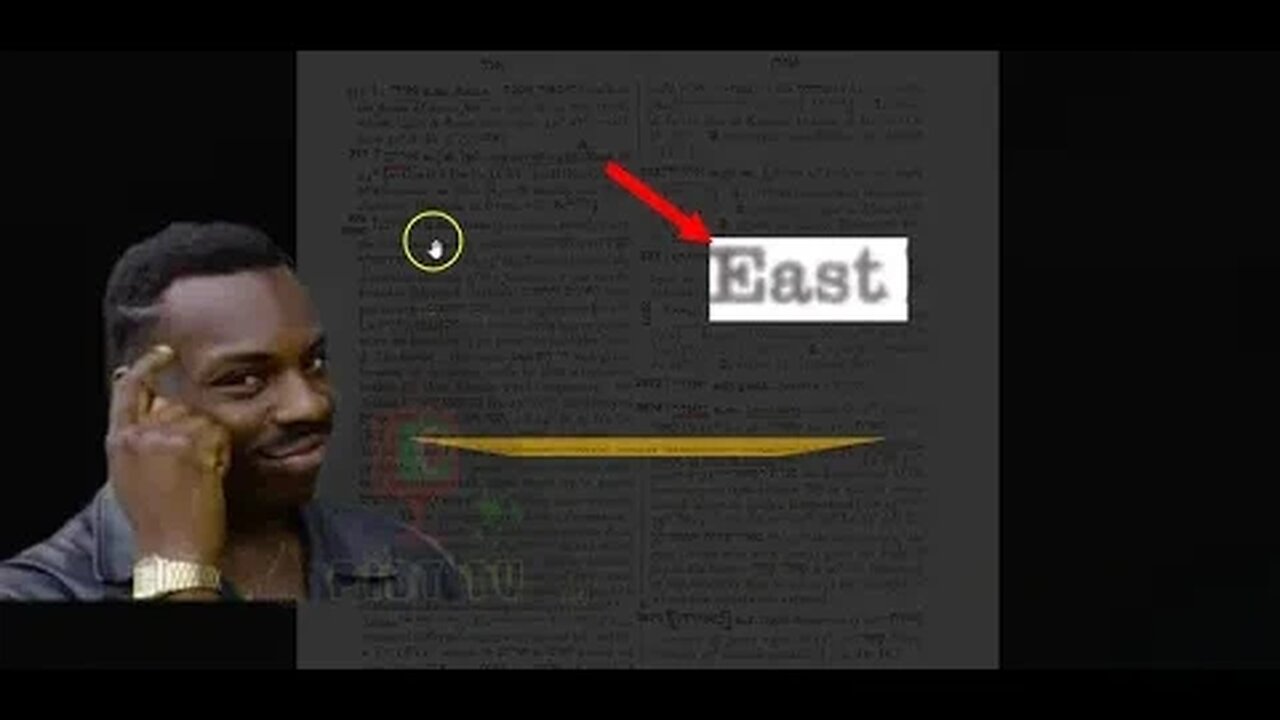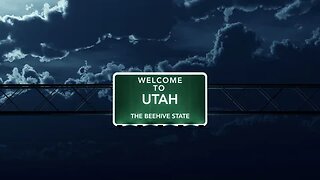Premium Only Content

Moor Doesn't Mean "Westerner", Doesn't Come From "Mahurin"
Register for an account on the Put It Out There TV: https://putitouttheretv.com/register
Welcome back to another JudahSon video, brought to you by the Put It Out There TV Network, where we delve into fascinating linguistic topics and debunk common misconceptions that many Moors have.
In today's video, we are going to explore the origin and meaning of the word "Moor" and clarify the misconception that it derives from the Canaanite word "Mahurin" and means "westerner." Join us as we uncover the truth behind this linguistic puzzle!
➤ The Origin of the Word Moor:
Contrary to popular belief, the word "Moor", spelled mayim(מ)-alef(א)-wa(ו)-resh(ר) in the Canaanite, does not have its roots in the Canaanite word "Mahurin." The term "Moor" actually originates from the Canaanite/Hebrew/Moabite word Maur (מאור), from which the Latin word "Maurus” derives.
In later times, Moors were referred to the original inhabitants of the ancient Roman province of Mauretania, located in present-day Morocco and Algeria. The Romans used this term to distinguish the people of this region from other African populations.
➤ The Meaning of the Word Moor:
According to the ancient Canaanite, Hebrew, and Moabite languages; the term “Moor” means “one of light”, as the root word for Moor is “aur” (מאור), which means “light”, “illumination”, “enlightened”, “east”, “sunrise”.
The term "Moor" (מאור) has evolved over time and has been used in various contexts throughout history. Initially, it referred specifically to the Khemite and Shemite Moors. However, during the Middle Ages, the term expanded to encompass a broader range of people, including Muslims from North Africa, the Iberian Peninsula, and even the Middle East.
It is important to note that the term "Moor" (מאור) was primarily used by Europeans to describe those who were of a so-called dark complexion. This broad usage led to a certain level of ambiguity and imprecision in its meaning. Nevertheless, it is crucial to understand that "Moor" does not inherently mean "westerner" or have any direct connection to the Canaanite word "Mahurin”, outside of both words both being Canaanite.
➤ Debunking the "Moor as Westerner" Myth:
The misconception that "Moor" (מאור) means "westerner" and is derived from the Canaanite word "Mahurin" has gained traction within the Moorish community. However, this claim lacks historical and linguistic evidence. The Canaanite language, spoken by the ancient Canaanites, is unrelated to the Latin language, from which the term "Moor" originates.
Furthermore, the term "Mahurin" in Canaanite does not translate to "westerner" or have any known connection to the concept of "Moor." It is crucial to rely on credible linguistic sources and historical records to avoid perpetuating inaccurate information.
➤ The Complex Identity of Moors:
Throughout history, the identity of Moors has been multifaceted and diverse. They were not solely defined by their geographical location or religious affiliation. Moors included individuals from various ethnic backgrounds, such as Berbers, Arabs, and Sub-Saharan Africans, who shared cultural, linguistic, or religious ties.
The term "Moor" was often used to describe Muslims during the medieval period, particularly in the context of the Muslim presence in the Iberian Peninsula. However, it is essential to recognize that not all Muslims were Moors, and not all Moors were Muslims. The term encompassed a broader range of people, including those who converted to Islam, as well as those who adhered to other faiths.
➤ Conclusion:
In conclusion, the word "Moor" does not derive from the Canaanite word "Mahurin" and does not mean "westerner." Its origin lies in the Canaanite/Hebrew/Moabite term "Maur", “one of light”. Over time, the term expanded to encompass a broader range of people, including Muslims from various regions.
It is crucial to rely on accurate historical and linguistic sources to avoid perpetuating misconceptions. Understanding the complex identity of Moors helps us appreciate the diversity and interconnectedness of cultures throughout history.
Thank you for joining us on this linguistic journey. If you found this video informative, don't forget to like, share, and subscribe to our channel for more captivating content. Stay curious, and until next time!
https://www.facebook.com/groups/397243874234967/posts/947430962549586/
https://www.facebook.com/Murakush/posts/the-etymology-of-the-word-moor-can-be-traced-to-the-phoenician-term-mahurin-mean/2434180886688174/
https://en.wikipedia.org/wiki/Moors
https://www.youtube.com/watch?v=H774VNBS47o
https://videos.putitouttheretv.com/proof-moor-doesnt-mean-black/
https://moorishnationalitycardservices.com/what-is-a-moor-exactly/
https://www.facebook.com/Murakush/videos/more-proof-the-word-moor-does-not-mean-black/1139239889587038/
https://youtu.be/QAB1DDaDQkk
https://fb.watch/nnpmYAbwHN/
-
 56:38
56:38
Flyover Conservatives
9 hours ago6 Steps to Take Advantage of Trump’s New Golden Age! - Clay Clark | FOC Show
35.2K2 -
 1:15:25
1:15:25
Glenn Greenwald
9 hours agoTulsi and RFK Jr. Approved by Key Senate Committees; Trump Meets Netanyahu: Wants to Cleanse Gaza; Pro-Palestinian Group Suspended at UMich | SYSTEM UPDATE #402
94.2K103 -
 1:43:57
1:43:57
Danny Polishchuk
9 hours agoThe Funniest Call In Show On Earth - Live From New York City's Best Comedy Club
54.9K1 -
 1:41:13
1:41:13
megimu32
8 hours agoON THE SUBJECT: Will the Super Bowl Be WOKE??!
41.4K7 -
 1:18:26
1:18:26
Redacted News
10 hours agoBREAKING! USAID Created and Funded COVID-19 Virus and Bioweapons, RFK and Tulsi pass major hurdle
163K218 -
 50:54
50:54
Candace Show Podcast
10 hours agoBecoming Brigitte: Gaslighting The Public | Ep 1
212K252 -
 4:41:05
4:41:05
Right Side Broadcasting Network
14 hours agoLIVE: President Trump Holds Press Conference with Israeli PM Benjamin Netanyahu - 2/4/25
232K100 -
 1:11:49
1:11:49
Edge of Wonder
10 hours agoInception Is Real: How Ads Are Showing Up in Our Dreams
41.4K6 -
 54:50
54:50
LFA TV
14 hours agoThe Trade War Ends | TRUMPET DAILY 2.4.25 7pm
36.6K7 -
 2:05:37
2:05:37
Quite Frankly
14 hours ago"Capitol Hill Headlines & The Utah Case" ft Lauren Conlin, The Zells 2/4/25
42.3K17